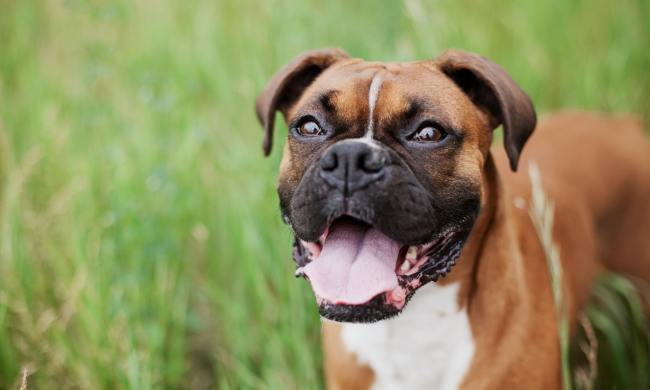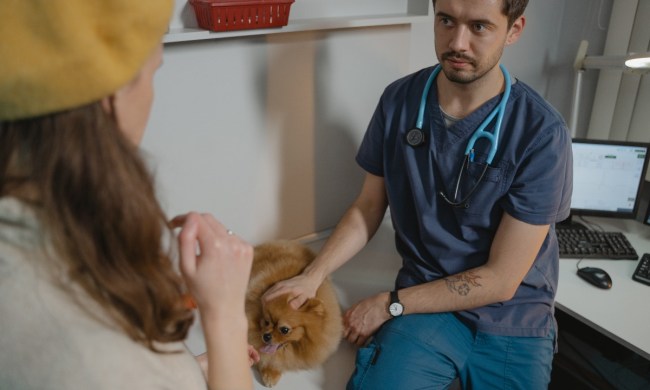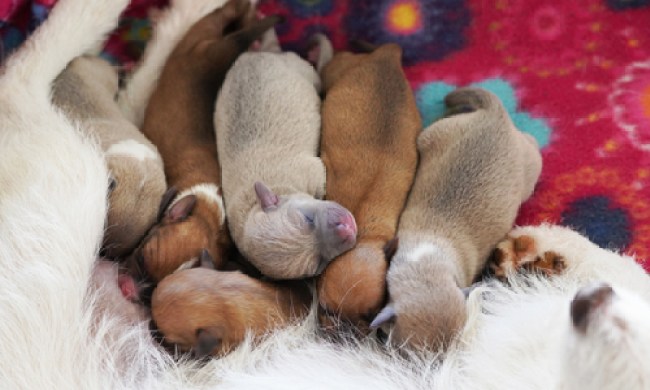When fresh grass sprouts in your backyard, does your dog turn into a grazing machine? Eating grass is a favorite pastime for many dogs. Some throw up shortly afterward while munching grass appears to have no physical impact on others. But why do dogs eat grass, and is it a problem? This is a frequent question posed to veterinarians. And while veterinary specialists agree that eating grass is a common, harmless behavior for dogs, there’s no definitive answer as to why they engage in the activity. Is it simply because they enjoy the taste of it? Could be! Read on to learn about three of the most common theories as to why dogs eat grass.
Grass might help with digestion
Many pet parents have noticed at one time or another that their dogs seem desperate to go outside. They open the door thinking the dog needs to do his business only to see him go straight to eating grass. The grass causes gastric irritation, which results in vomiting, and the dog returns to his happy self. This action leads to the assumption that dogs eat grass to relieve an upset stomach. In an article written by veterinary specialists at the VCA Hospital group, the authors say this assumption raises a perplexing question: “Does the dog eat grass to vomit and soothe an ailing stomach, or does he develop a stomachache and vomit because he ate grass?” The authors conclude that since studies show that less than 25% of dogs vomit after eating grass and only 10% show signs of illness beforehand, “it’s unlikely they turn to the green stuff as a form of self-medication.” The veterinarians write that rather than aiding an upset stomach, grass may help a dog’s digestive system by adding fiber, which helps with digestion and makes pooping easier.
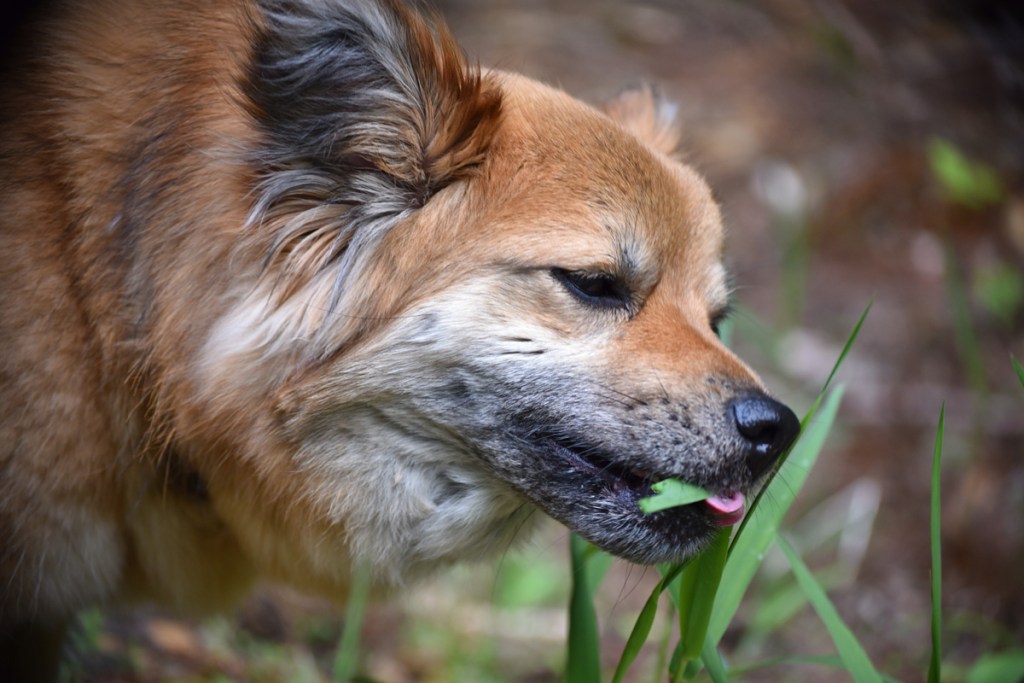
Grass fulfills a nutritional deficiency
Despite your best efforts to provide your dog with the highest-quality food possible, his body may be craving certain nutrients. Nutritional experts say that a dog’s body has different nutritional needs depending on age and activity level. Your dog may be eating grass to get nutrients missing from his diet. Grass is high in potassium, chlorophyll, and digestive enzymes.
Grass eating may be an inherited behavior
Researchers at the University of California, Davis School of Veterinary Medicine conducted a study of 1,500 dogs to learn why they ate grass. The 2008 study concluded that the dogs didn’t suffer from upset stomachs and weren’t lacking in nutrients. In an article published by Cape Ann Veterinary Hospital, one of the researchers, Benjamin Hart, who has studied animal behavior for almost 50 years, said the research concluded that eating grass is probably a trait inherited from wild ancestors.
“We know that wolves and cougars eat grass,” said Hart. “That’s because they carry intestinal parasites. That’s just part and parcel of being in nature. Wild animals don’t have anything like the medicines we have for controlling worms. But by eating grass regularly, they can prevent a buildup by purging their systems of these parasites.”
The study also revealed that younger dogs are more likely to eat grass than older ones, and that’s also true in nature, Hart said.
When grass eating should be a cause for concern
If there’s a sudden increase in eating grass, it could be a sign of underlying health issues. This may also be accompanied by other symptoms, including vomiting, diarrhea, weight loss, decreased appetite, blood in the stool, or lethargy. A dog exhibiting these symptoms should be checked out by a veterinarian.
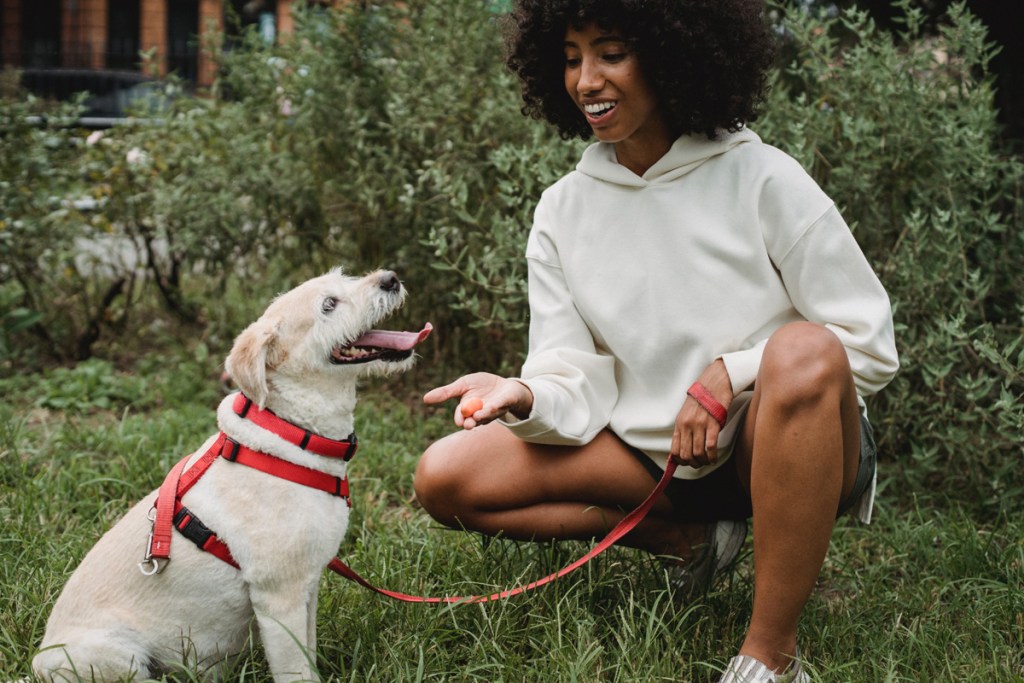
The bottom line is, it’s perfectly normal for your dog to eat grass. However, it’s up to you to ensure that the vegetation is safe. If he’s eating grass in your yard, don’t spray the lawn with herbicides and pesticides, as these can be toxic to your pet. Also, don’t allow your dog access to sprayed yards or grassy areas in your neighborhood. To be safe, take treats on your walks in case you need to distract your dog from eating treated grass.

